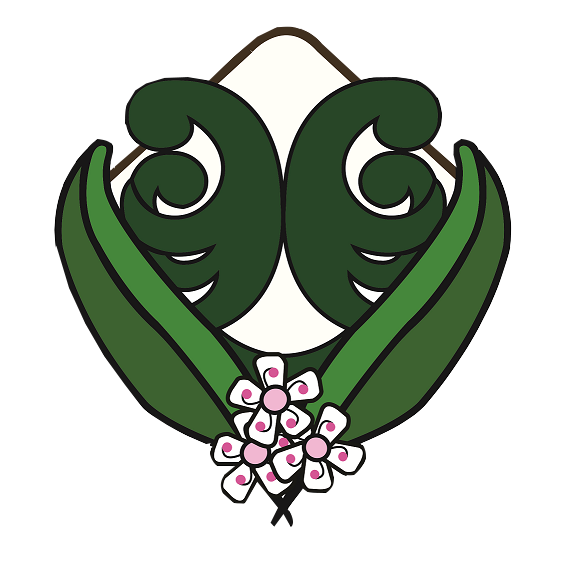Te Whāriki a Te Kōhanga Reo
Curriculum
Te Whāriki is the early learning curriculum based on an indigenous framework immersed in Te Reo Māori. It defines learning outcomes for Kōhanga Reo. Part of Te Whāriki sets out the ways in which the principles and strands will be put into practice in ngā Kōhanga Reo. It is founded on four principles.
Whakamana
Empowerment
Whakamana i te mokopuna kia pakari ai te tipu o tōna tinana, o tōna hinengaro, o tōna wairua me tōna whatumanawa. Mā te ora o ēnei ka ngawari te ako, me te tipu.
Kotahitanga
Holistic Development
Me ū ki te kotahitanga o ngā whakahaere mō te ako me te ārahi i te mokopuna. Mā tēnei kaupapa e whakahikohiko te mokopuna ki te ako, ki te tipu.
Whānau tangata
Family and Community
Whakatinana i te kaupapa o te whanaungatanga kia mōhio ai te mokopuna, ko wai ia, ā, i ahu mai ia i hea. Kua mōhio ia ki tōna whānau me ngā tāngata o tōna kāinga noho.
Ngā hononga
Relationships
Ko ngā hononga me ngā piringa i waenganui i te mokopuna me ngā tangata katoa, tae atu rā ki ngā tamariki, ka whai wāhi atu ki a ia.
He aha te Kōhanga Reo?
What is Kōhanga Reo?
Te Kōhanga Reo is a total immersion te reo Māori whānau (family) programme for mokopuna (young children) from birth to six years of age to be raised within its whānau Māori, where the language of communication will be Māori. The operation and decision making of each Kōhanga Reo is the responsibility of the whole whānau within the guidelines set down by Te Kōhanga Reo National Trust Board. The Trust board and the whānau Kōhanga Reo administer the kaupapa to ensure the safety and well-being of the mokopuna and the whānau and to ensure the survival of te reo Māori.
The literal translation of the words ‘Kōhanga Reo’, ‘language nest’, indicates that the retention of the Māori language is one of the central objectives of the Kōhanga Reo movement. The kaupapa of Te Kōhanga Reo is based on total immersion in the language and culture which promotes learning within an appropriate cultural context, drawing on Māori styles of learning and teaching. In this context wairua is an integral component.
Kōhanga Reo centres provide a location and a purpose for people of all ages to meet and work together. The Kōhanga Reo kaupapa is powerful in drawing people together to support each other and work towards the ultimate goal of a bilingual and bicultural nation.
The programme reaches young families who would not otherwise have taken part in early childhood services. Through Trust training branches it has provided opportunities for young Māori to gain knowledge and skills and the confidence to enter and speak out in new spheres. The autonomy of the Kōhanga reo within the kaupapa has meant that the Kōhanga Reo whānau have had to acquire new administration and management skills in carrying out their responsibilities for the programme.
Kōhanga Reo have been established in every district to ensure that every family has access, these centres. This will provide a place for learning Te Reo me ōna tikanga Māori and environment of whānaungatanga where the mokopuna will be nurtured within the bosom of the whānau, where Te Reo Māori will prevail and where love and care will spring from the whānau.
Ngā whāinga o te Kōhanga Reo
Aims of Kōhanga Reo
The policy of Te Kōhanga Reo is comprehensive: it is education for life. It covers cultural, spiritual, social, economic, and educational aspects. Te Kōhanga Reo aims to reaffirm Māori culture through whānau development, thus restoring Māori self-determination. In particular, it aims to achieve this goal through the organisation of local Kōhanga Reo on a whānau model.
The aims of Te Kōhanga Reo are:
- Children will learn the Māori language and culture, including the spiritual dimension, through immersion;
- Language and cultural learning will be fostered and supported for all members of the whānau o te Kōhanga Reo;
- Members of the Kōhanga Reo will learn within the whānau setting, a range of skills that supports the philosophy;
- Collective responsibility for the administration and operations of the Kōhanga Reo will be fostered through whānau development;
- It is essential that all the people involved will develop a sense of being accepted and belonging;
The content, context and control of learning will be Māori.
